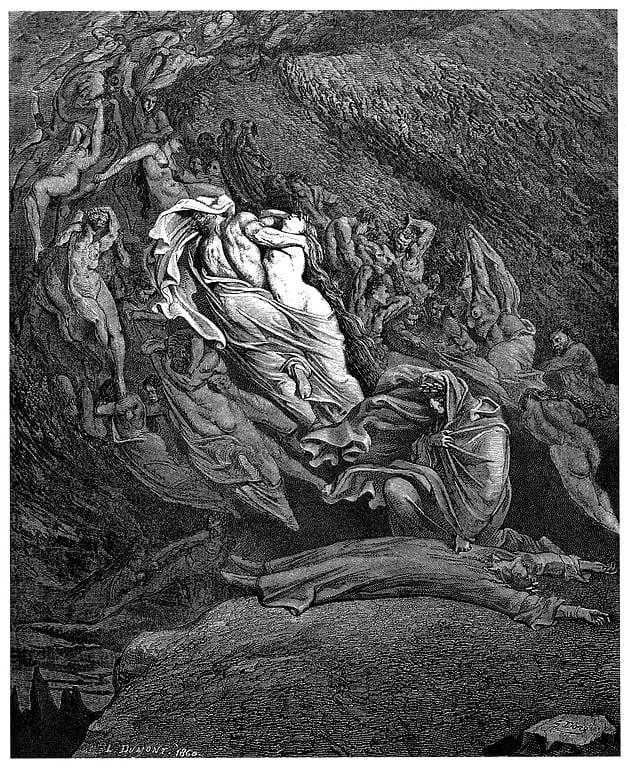
Hell, purgatory, and heaven seem to differ as do despair, almost-despair, and the assurance of safety. (The 95 Theses, #16; 31 October 1517; translated by C. M. Jacobs, 1915)
With souls in purgatory it seems necessary that horror would grow less and love increase. (Ibid., #17)
I say nothing about the fire and place of purgatory, not because I deny them, but because that discussion is another one which I do not undertake to bring up at this time. . . . I am positive that there is a purgatory, . . . (Explanations of the Ninety-Five Theses, Aug. 1518; translated by Carl W. Folkemer; in Luther’s Works [LW], vol. 31)
Some individuals have tasted these punishments in this life, especially those of hell. Therefore we must believe even more that they are imposed upon the dead in purgatory. (Ibid.)
[T]he meaning and force of the term “purgatory” imply a cleansing which can only be understood as pertaining to the remains of the old nature and sin, because of which those persons are unclean who in their affection for earthly things have hindered the purity of faith. (Ibid.)
[P]urgatory also increases that good which is love for God, indeed, increases that most of all. . . . Since the greatest weakness exists in purgatory, therefore purgatory perfects love most of all. (Ibid.)
We ourselves, because we believe that no man goes to purgatory unless he belongs to the number of those who must be saved, are certain about the salvation of those in purgatory just as we are certain about the salvation of the elect. (Ibid.)
[T]his faith, I say, is truly able to do all things in heaven, earth, hell and purgatory, . . . (A Treatise on the Holy Mass, Aug. 1520; translated by J. J. Schindel in 1915)
I have never yet denied that there is a purgatory, and I still hold that there is, as I have many times written and confessed, though I have no way of proving it incontrovertibly, either by Scripture or reason. I find in the Scriptures, indeed, that Christ, Abraham, Jacob, Moses, Job, David, Hezekiah and some others tasted hell in this life. This I think to be purgatory, and it is not incredible that some of the dead suffer in like manner. Tauler has much to say about it, and, in a word, I have decided for myself that there is a purgatory, but cannot force any others to the same decision. . . . It is enough for us to know that they [sols in purgatory] are in great and intolerable pain, and crave our help. (An Argument in Defense of All the Articles of Dr. Martin Luther Wrongly Condemned in the Roman Bull, December 1520; translated by C. M. Jacobs)
On purgatory, I have this opinion: I do not think . . . that it is a certain place, . . . I think purgatory is that punishment which they call a foretaste of hell and under which . . . Moses, Abraham, David, Jacob, Job, Hezekiah, and many others suffered. . . . it is purgatory for me regardless of whether this punishment takes place emotionally or physically, since we attribute such punishment to purgatory. (Letters I, edited and translated by Gottfried G. Krodel; to Nicholas von Amsdorf, 13 Jan. 1522; in LW, vol. 48)
I am of the opinion that purgatory is not so general as they say, but that only a few souls will enter it. (Sermon for the Epiphany; Matthew 2:1-12, 1522)
Not that I, at this late day . . ., deny the existence of purgatory; but it is dangerous to preach it, whatever of truth there may be in the doctrine, because the Word of God, the Scriptures, make no mention of a purgatory. (Sermon for Christmas Eve; Titus 2:11-15, 1522)
Nor have we anything in Scripture concerning purgatory. . . . Therefore, I maintain it is not necessary to believe in it; although all things are possible to God, and he could very well allow souls to be tormented after their departure from the body. (Confession Concerning Christ’s Supper, Feb. 1528, translated by Robert H. Fischer; in LW, vol. 37)
***
Related Reading:
Prayer for the Dead & Retroactive Prayer (Luther & Protestants) [3-22-05]
Luther Believed in Soul Sleep; Thus He Rejected Purgatory [2-9-08]
Luther: Purgatory “Quite Plain” in 2 Maccabees [3-5-09]
***
(originally 11-17-14)
Photo credit: Illustration to Dante’s Inferno. Plate XVIII: Canto V: “Dante is so overcome by the sad tale of Francesca di Rimini that he faints. And he fainted as he was being brought into Limbo, too” (1857), by Gustave Doré (1832-1883) [public domain / Wikipedia]
***













